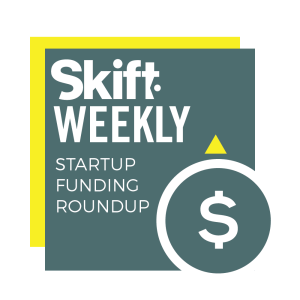Cloudbeds Raises $82 Million for Hospitality Tech: Travel Startup Funding This Week

Skift Take

Travel Startup Funding This Week
Each week we round up travel startups that have recently received or announced funding. Please email Travel Tech Reporter Justin Dawes at jd@skift.com if you have funding news.This week, travel startups announced more than $133 million in funding.
>>Cloudbeds, a provider of enterprise software for hospitality management, raised a Series C minority investment of $82 million.
Viking Global Investors led the round. PeakSpan Capital, Recruit Co., Counterpart Ventures, and Cultivation Capital also participated. The startup had previously raised more than $21 million in venture capital.
Cloudbeds offers software that runs more than 20,000 properties ranging from boutique hotels to hostels, vacation rental managers, and hotel groups with hundreds of rooms.
The San Diego startup will use the funds to build new products and to help managers automate front-end and back-end operational tasks, said co-founder and CEO Adam Harris. It will also add more integrations with third-party services and more tools to help train hoteliers and property hosts.
"Since the beginning, we've broken away from the traditional definitions of PMS [property management system], channel manager, RMS [revenue management system, analytics, and booking engine [to take online reservations]," said Richard Castle, co-founder and chief operating officer. Cloudbeds offers basic versions of all of those common functionalities in a cloud-based suite, Castle said.
Cloudbeds was one of Skift's Top Travel Startups to Watch in 2019.
>>Fenbeitong, a Chinese business expense management startup, raised $36 million in a Series B extension funding round.
Eight Roads, Ribbit Capital, and Glade Brook Capital led the round. The Beijing-based startup has so far raised a total of $57.7 million.
Fenbeitong is a corporate wallet app that lets users manage, pay, and receive reimbursement for business expenses and use a virtual card.
It said it will expand its corporate travel subsidiary.
"We have seen unicorns like Brex, Divvy, and TripActions emerge in corporate expense management in the U.S., and the same market trend is happening in China," said CEO Xi Lan in a statement to DealStreetAsia.
>>Banzai, a corporate event marketing automation company, raised $7 million in Series A financing.
DNX Ventures led the round. Vulcan Capital also participated.
Since its debut in 2017, the Seattle-based startup has generated thousands of event and conference registrations for companies like Microsoft, Google, and Oracle.
"Events are the single largest marketing expense for companies today," said CEO Joe Davy. "There has been almost no innovation in the event marketing automation category."
>>Checkfront, a maker of software for tours-and-activities operators, closed a $6.7 million ($9.3 million Canadian) Series A investment round.
Framework Venture Partners led the round. PenderFund Capital Management and Conconi Growth Partners participated. The investment marks the company's first significant external funding.
Checkfront, based in Victoria, British Columbia, Canada, helps more than 5,000 sightseeing-and-experience operators accept reservations, process payments, track customers, sign waivers and documents, and simplify complex pricing, seasonality, and inventory requirements. It has processed more than $4 billion ($5.5 billion Canadian) in online bookings since its launch in 2010, said CEO Jason Morehouse.
>>SuitePad, which supplies digital tablets for hotel guest rooms, raised an undisclosed seven-figure sum in a seed funding round.
Riverside Acceleration Capital, Target Partners, IBB Beteiligungsgesellschaft, and Howzat Partners participated.
In 2016, the Berlin-based SuitePad secured about $3.4 million (€3 million) in funding, led by Target Partners. The company was founded in 2012 and later pivoted focus.
"SuitePad has successfully driven the development of the company and its products from the original concept of a digital guest directory to a modern hotel room operating system with key functionalities, such as centralized room control, hotel room telephone, and TV solutions," said Berthold von Freyberg, a partner at Target Partners.
Skift Cheat Sheet:
We define a startup as a company formed to test and build a repeatable and scalable business model. Few companies meet that definition. The rare ones that do often attract venture capital. Their funding rounds come in waves.
Seed capital is money used to start a business, often led by angel investors and friends or family.
Series A financing is typically drawn from venture capitalists. The round aims to help a startup's founders make sure that their product is something that customers truly want to buy.
Series B financing is mainly about venture capitalist firms helping a company grow faster. These fundraising rounds can assist in recruiting skilled workers and developing cost-effective marketing.
Series C financing is ordinarily about helping a company expand, such as through acquisitions. In addition to VCs, hedge funds, investment banks, and private equity firms often participate.
Series D, E and beyond These mainly mature businesses and the funding round may help a company prepare to go public or be acquired. A variety of types of private investors might participate.





